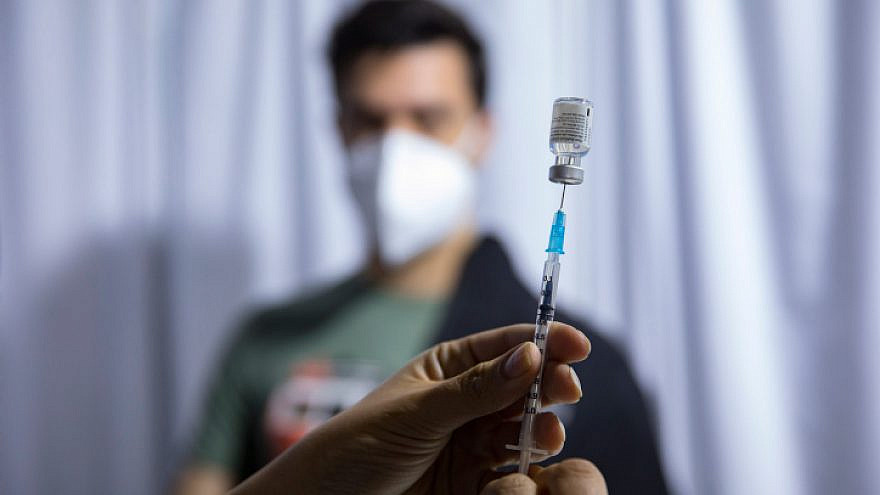People who’ve received the Pfizer-BioNTech COVID-19 vaccine appear to be significantly less likely to “shed” or transmit virus particles that may be in their nose or throat.
That is the finding of a study pre-published on Feb. 8 by Israeli scientists from MyHeritage Lab, the Central Virology Laboratory at Sheba Medical Center and the Technion-Israel Institute of Technology.
The study, the results of which have not yet been peer reviewed, may answer the key question of whether COVID-19 vaccines not only protect a person vaccinated, but also people in proximity to them.
Such a study was possible only because real-world data is abundant in Israel, which started its Pfizer vaccination rollout on Dec. 20 and focused on individuals 60 and older.
The study traced the cycle threshold (Ct) value distribution, which indicates how much virus an infected person harbors, of 16,297 positive qPCR tests performed between Dec. 1 and Jan. 31 on samples taken from these two age groups.
“As we do not have access to the vaccine status of each test, our hypothesis was that if vaccines reduce viral load, we should see a difference in the Ct values between these two age groups in late January but not before,” they explained.
Sure enough, until Jan. 15 there was no statistically significant difference in the average Ct value between the groups. In the last two weeks of January, as predicted, the average Ct value of 60-plus individuals tested was significantly weaker compared to the younger group.
After corroborating these results using a mathematical model, the scientists used demographic data and daily vaccination rates to estimate the effect of vaccination on viral load reduction.
“Our estimate suggests that vaccination reduces the viral load by [a factor of] 1.6 to 20 … in individuals who are positive for SARS-CoV-2. This estimate might improve after more individuals receive the second dose,” they wrote. “Taken together, our findings indicate vaccination is not only important for individual’s protection but can reduce transmission.”
This article was first published by Israel21c.


























